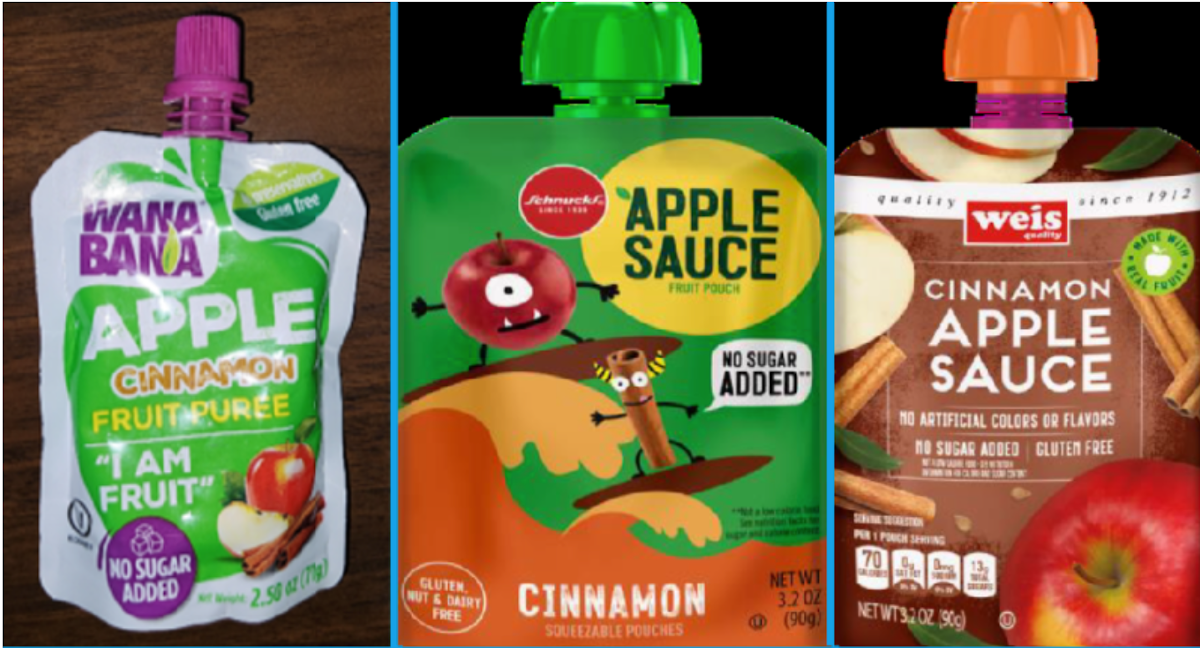
Public health officials have identitified more children with elevated levels of lead in their blood after eating certain brands of cinnamon applesauce.
The count as of today, Nov. 22, stands at 52, up from 34 on Nov. 16, according to the Food and Drug Administration. The patients range from less than 1 year old to 4 years old and come from at least 22 states.
Three recalls have been issued for implicated applesauce sold under the Wanabana, Schnucks and Weis brands. The Wanabana brand was sold nationwide and online. The other brands were sold at regional grocery stores.
The FDA has become aware that the recalled Wanabana brand cinnamon applesauce is still for sale in several Dollar Tree stores in multiple states and is working with the company to make sure all remaining product is removed. The recall information on the implicated products can be found here.
“FDA’s leading hypothesis is that cinnamon used in these recalled pouches is the likely source of contamination for these products; however, the FDA has not yet been able to collect and test samples of the cinnamon used in the recalled products. The FDA is continuing to work with Ecuadorian authorities to investigate the source of the cinnamon. At this time, FDA has no indication that this issue extends beyond these recalled products, but to further protect public health, FDA is screening incoming shipments of cinnamon from multiple countries for lead contamination,” according to the agency’s outbreak notice.
The problem was initially discovered by public health officials in North Carolina during their investigation of children with high levels of lead in their blood. North Carolina officials were able to identify WanaBana apple cinnamon fruit puree pouches as a potential shared source of exposure. As part of their investigation, North Carolina officials analyzed multiple lots of WanaBana apple cinnamon fruit puree, detecting extremely high concentrations of lead.
The recall impacts markets outside of the United States. Customer information provided by the firm shows that product was also distributed to Cuba and the United Arab Emirates.
Lead is toxic to humans and can affect people of any age or health status, but children are particularly susceptible to lead toxicity. Lead poisoning can result in several long-term problems, including developmental disorders and brain damage.
“These products have a long shelf life. Consumers should check their homes and discard these products. Most children have no obvious immediate symptoms of lead exposure,” according to the FDA’s alert. “If there’s suspicion that a child may have been exposed to lead, parents should talk to their child’s healthcare provider about getting a blood test.”
Short-term exposure to lead can result in the following symptoms: headache, abdominal pain/colic, vomiting, and anemia. Longer-term exposure could result in additional symptoms: irritability, lethargy, fatigue, muscle aches or muscle prickling/burning, constipation, difficulty concentrating/muscular weakness, tremors, and weight loss.
